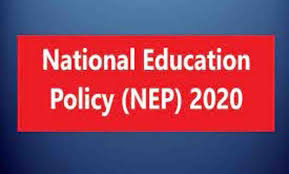Bridging Educational Paradigms: A Comparative Analysis of India and the USA - Group Discussion

GROUP DISCUSSION THE NATIONAL UN VOLUNTEERS-INDIA Bridging Educational Paradigms: A Comparative Analysis of India and the USA ❄️Dr. Sekar Srinivasan Introduction Education systems shape the intellectual and social development of a nation’s youth, influencing the future of societies and economies. India and the USA, two major global players, have distinctly different approaches to education. This report provides a comprehensive analysis of the fundamental differences between the education systems of India and the USA, supported by detailed data and insights. Overview of Educational Systems India: 🔹Structure: India’s education system is predominantly structured into pre-primary, primary, secondary, and higher education levels. 🔹Examinations: Emphasis on high-stakes standardized examinations, such as the CBSE, ICSE, and state board exams. 🔹Curriculum: Heavily theoretical with a focus on rote learning and memorization. 🔹Higher Education: Highly competitive entrance exa...





